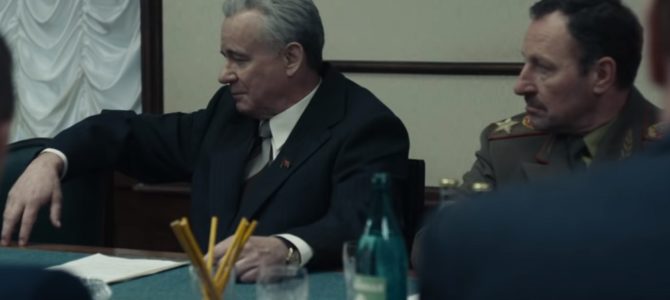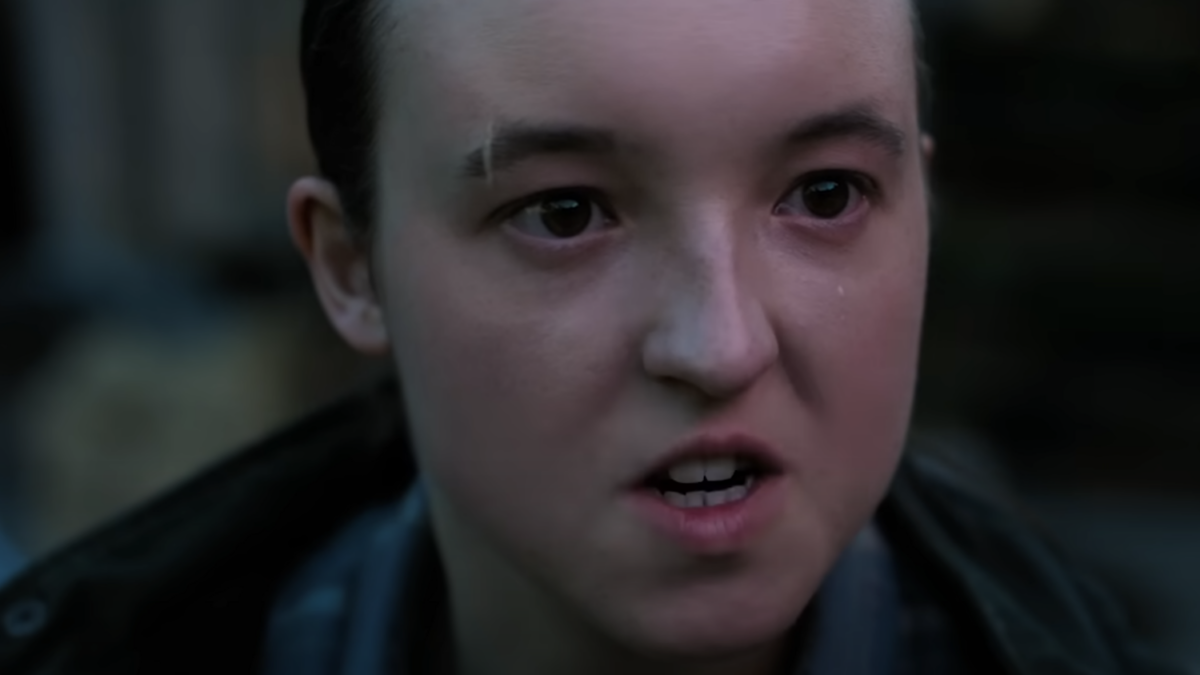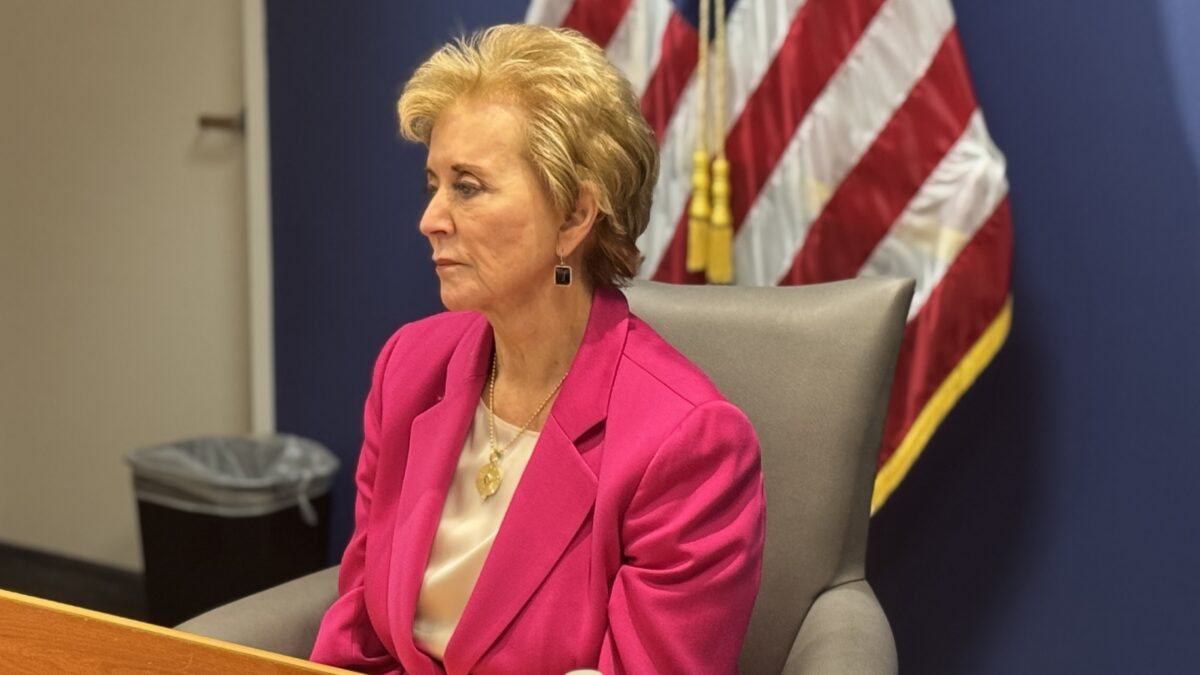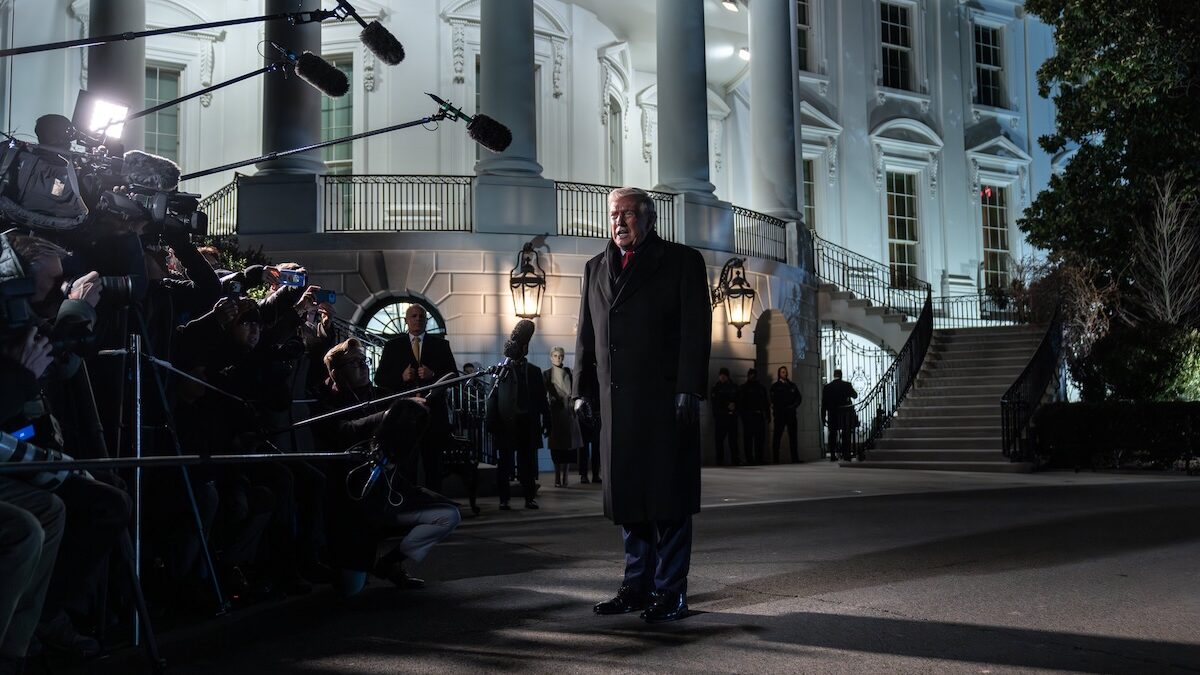
“It is always there, whether we see it or not, whether we choose to or not. The truth doesn’t care about our needs or wants. It doesn’t care about our governments, our ideologies, our religions. It will lie in wait for all time.” These words from nuclear scientist Valery Legasov, uttered in the final episode of “Chernobyl,” are a significant thread throughout the HBO miniseries.
Perhaps surprisingly, at a time many cultural producers have bought into the left’s call for socialist policies, “Chernobyl” provides viewers a rare, honest, and raw look at the reality of socialism and, especially in the case of Chernobyl, the significant flaws of a system where The Truth is whatever serves the needs of the Central Committee.
The damage caused by a state that reigns supreme over any truth or fact is foreshadowed in the series’ opening scene. There again, we hear Legasov’s thoughts: “What is the cost of lies? It’s not that we’ll mistake them for truth. The real danger is that if we hear enough lies, then we no longer recognize the truth at all. What can we do then? What else is left but to abandon even the hope of truth.”
These costly lies are told throughout the series, by everyone. Even the characters who seem to be heroes-in-the-making become complicit.
In discussions at the Chernobyl Nuclear Powerplant, workers are told what they didn’t see. In meetings with Mikhail Gorbachev, the Central Committee is told the situation isn’t serious. In the streets, citizens are told their evacuations are temporary. At the site of the exploded reactor, miners and conscripted citizens are told they’ll be fine. No one truly believes the lies he tells. For the good of the state, they are repeatedly told: “Have faith, comrades.”
In the first of several chilling monologues delivered on the supremacy of the state, it is reiterated that “Faith in Soviet socialism will always be rewarded.” Yet this blind faith in the state is what’s so damaging. “When the people ask questions that are not in their own best interest they should simply behold to keep their minds on their labor,” agents of the government declare. “Leave matters of the state to the state.”
This kind of thinking is what made Chernobyl an unmitigated disaster. The idea that the state—i.e., those on the Central Committee—knows best is proven wrong over and over. As Gorbachev says, “Our power comes from the perception of our power.” In the pursuit of protecting this perception of power, innocent life is treated as expendable in the response to the explosion, for the determined good of the state.
Evacuation recommendations are ignored. Communication with the outside world is cut off. Workers conscripted to serve at the reactor site are knowingly condemned to horrific deaths. “This is what has always set our people apart,” explains the USSR’s Fuel and Energy Bureau head Boris Shcherbina at one point. “A thousand years of sacrifice is in our veins. And every generation must know its own suffering.”
Despite the overwhelming force of the state, another nuclear scientist, Ulana Khomyuk, works with Legasov in an attempt to uncover the truth of how and why the disaster happened—an adventure not without peril of its own. When the KGB arrests Khomyuk, Legasov begs for her release. He is saved from punishment for this improper questioning of a state authority, according to Shcherbina, because Legasov “came off like a naive idiot—and naive idiots are not a threat.”
Lacking a singular protagonist, “Chernobyl’s” creators opt instead to highlight the Soviet people. Humanity is seen in the victorious spirit of the divers who sign their death warrants to pump water out from the reactor facility manually. It’s seen in Vasily Ignatenko, a firefighter who was among the first to arrive on the scene following the explosion, and his wife. It’s seen in the miners who agree to dig under the reactor to install a heat exchanger.
In a poignant scene during the forced eviction of those within the exclusion zone, it’s shown in a monologue from an 82-year-old woman who’s told by a young soldier she must leave:
You’re not the first soldier to stand here with a gun. When I was 12, the Revolution came. Czar’s men. Then Bolsheviks. Boys like you marching in lines. They told us to leave—No. Then there was Stalin and his famine, the Holodomor. My parents died. Two of my sisters died. They told the rest of us to leave—No. Then the Great War. German boys, Russian boys. More soldiers, more famine, more bodies. My brothers never came home. But I stayed, and I’m still here. After all that I have seen, I should leave now because of something I cannot see at all—No.
The Soviet people (and their cows, dogs, and homes) paid the price for the Central Committee’s lies and self-preserving suppression of truth.
Much like Chernobyl’s radiation demolished the cellular structure of the afflicted, this system poisons society and eats away at the convictions of those who know the truth. Shcherbina speaks, seemingly from experience, when discussing the possibility of exposing the full story of why Reactor Four turned into a nuclear bomb: “When it’s your life and the lives of everyone you love [on the line] your moral conviction doesn’t mean anything,” he says. “It leaves you. And all you want at that moment is not to be shot.”
The reward for furthering the state’s lies is made to seem more appealing. Legasov is offered recognition as “Hero of the Soviet Union,” but only if he follows the KGB’s plan to cover the truth at the sham trial for those chosen to take the fall for the state’s negligence. Once Legasov’s testimony is given, explains the KGB, “We will have our villains, we will have our hero, we will have our truth.”
“Their truth,” the infallibility of the state, is finally shattered when Legasov chooses to tell the full story of the cover-up leading to the explosion. He’s warned at the trial that if he’s implying the state is responsible for the disaster, he is “treading on dangerous ground.”
Legasov responds: “I’ve already trod on dangerous ground. We’re on dangerous ground right now because of our secrets and our lies. They’re practically what define us. When the truth offends we life and lie until we can no longer remember it is even there. But it is still there. Every lie we tell incurs a debt to the truth. Sooner or later, that debt is paid.”
The rejection of truth is indeed dangerous, whether it’s to appease the Soviet state in the 1980s or to earn a gold star from the politically correct cultural gatekeepers of today. What HBO’s “Chernobyl” may lack in scientific accuracy, it more than makes up for by showing the dangerous truth of what socialism can bring.
Those who peddle socialism’s glory today are hiding a truth as nefarious as the reality of Chernobyl’s exposed reactor. These lies too incur a debt, one that Americans will pay if we don’t heed the warnings of socialism given to us by history.









